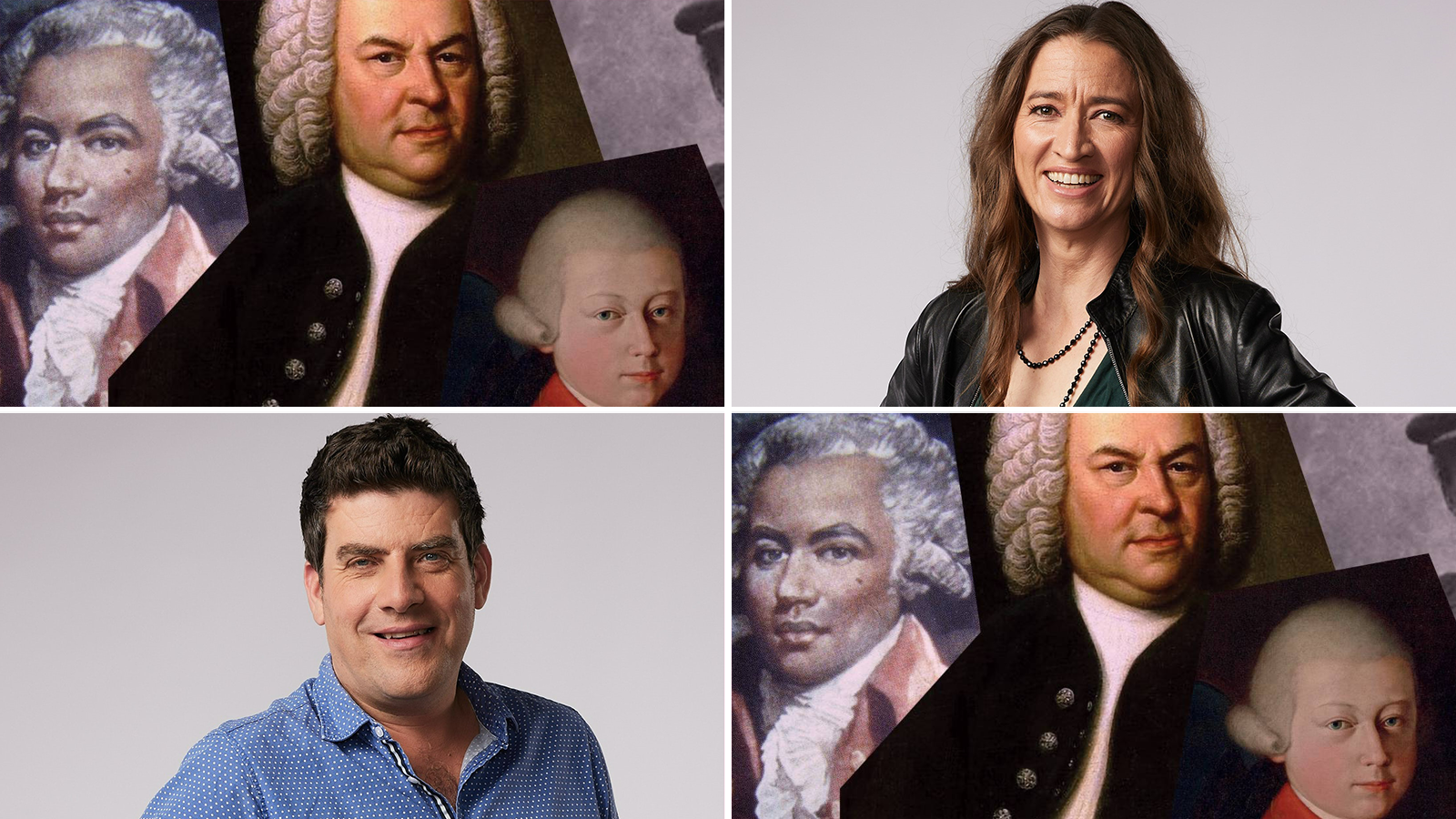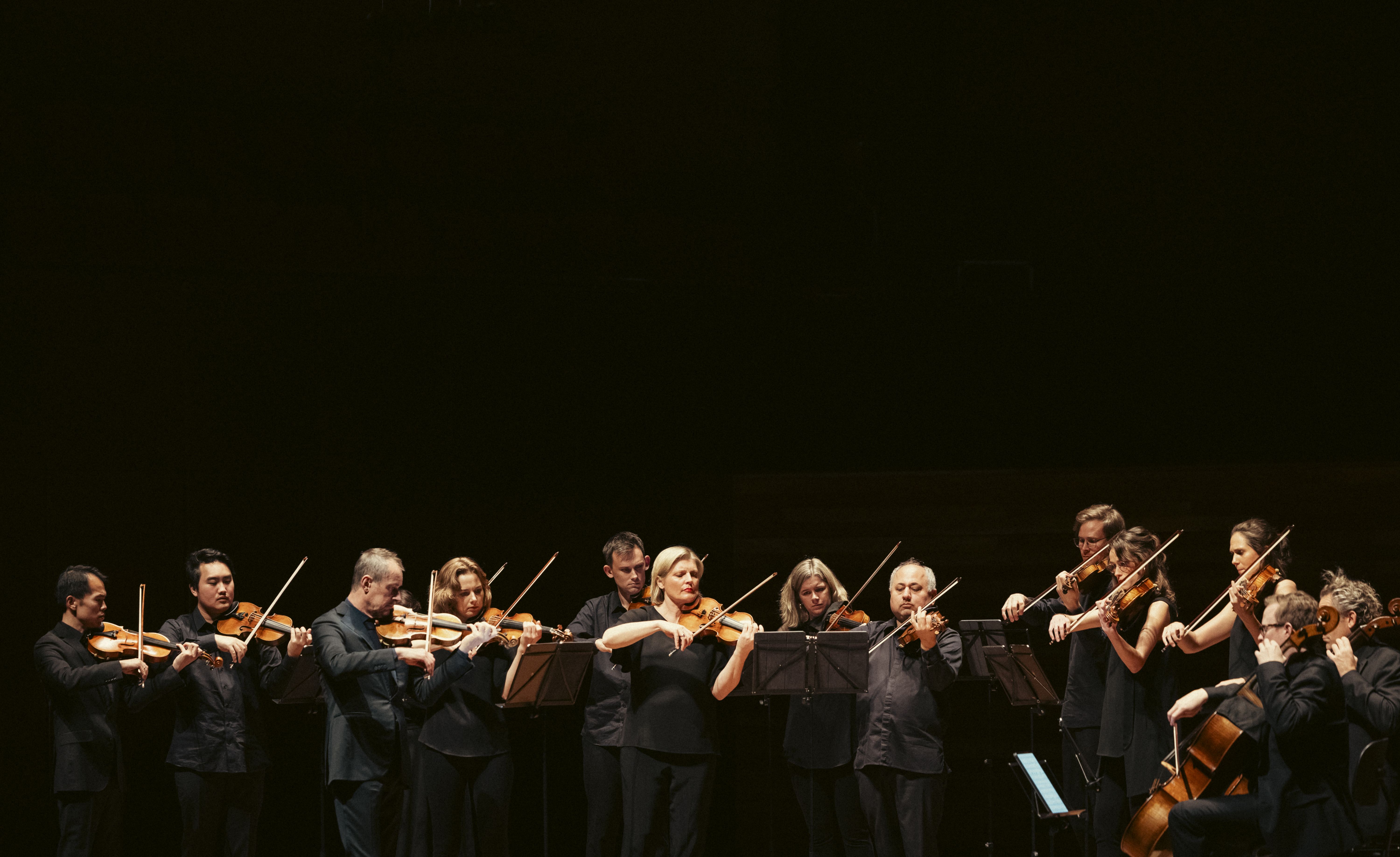
“When it comes to the history of music, it's quite easy to grab a big book from the library or the op shop, and get a conventional view,” Russell Torrance, who will present the ACO and ABC Classic’s co-production, An Unauthorised History of Classical Music this month, says. “We're trying to do something different. Each talk is on a specific subject and, if you only make it to one, don't worry, there'll be stuff to take away, and you won't feel left out!”
All four talks together, though, will be a rewarding romp through everything, from the nature of sound and how it works, to bizarre musical facts from history, Russell says. “It'll be fun - that's the most important part!”
Across four nights, Russell and ABC Classic’s Genevieve Lang will survey 1000 years of music, introducing us to the key ideas, uncovering some neglected figures, and unearthing some strange truths from the history of this beautiful art form.
“People often say, ‘I want to get into classical music, but I don't know where to start’,” Russell says. “My brother-in-law for example is a fan of heavy metal, and he’s keen on getting to know classical music, because he sees it as giving him a similar feeling.
“He asked for playlists of suitable music and I started off sending him heavy stuff: Mosolov, bits of Shostakovich. I think his favourite so far has been something that surprised me – Gorecki. So you never know!”
From classical to metal, music resonates with people like this universally. But why? Russell’s co-presenter, Genevieve, has a theory:
“Sound is the first sense we develop in the womb; rhythm and pitch are gifted to us by our mothers from the very beginning. I think there’s something primal in our response to music, that cuts through all the ‘busy-mindedness’ of daily living and doing.”
She adds: “When music hits the mark for me, it triggers a visceral response, and I expect – and hope, actually – that science will take a long time to give us the explanations. For me, music is magic in real time.”
“For me, music is magic in real time”Genevieve Lang - Presenter, An Unauthorised History of Classical Music
Russell agrees that music’s power to affect us is best left a mystery.
“I think that it's a mystery, and I hope that it remains so. Cultural connection plays a big part: identifying with what the music means, whether it's something to do with your past and your heritage, or something you associate with a favourite movie.
He points out there’s also memory playing a big part in what music makes us feel, on top of the physical impact of the sound itself. “But it's a puzzle I never want to solve,” he confides.
For both presenters, music produces feelings, but feelings also produce music.
“The melting pot when different cultures meet always creates fantastic art,” Russell reflects. “It can happen in peacetime, but it's often bad things that make some of the best music, it's sad to say. The horrors of war slavery continue to rip families apart and displace people. But with that comes a meeting of cultures and mixing of music.
“Peoples’ collective struggle and shared experiences have created such important music throughout history. All of these are expressions of defiance and survival.”
Genevieve agrees that dark events around human conflict have had some of the biggest impacts on the history of music.
“Beyond the birth of every single creative individual who was ever called to compose or perform, it’s surely war that holds the greatest responsibility for the way music has evolved,” she says. “In the modern age, consider how many artists were lost through war, how many were displaced, how many were forced to change their musical language to fit the ideals of a regime.
“Consider the grief of those who survived, and how they poured that sorrow and despair into some of the most powerful music ever written. Or what it meant to abandon a rhetoric of conflict to find something more peaceful and eternal in music. War touches all corners of music, right throughout the ages.”
It’s powerful to think how the stories and anguish of these experience come to us through time as music.
Unforgettable music has kept the names of composers from hundreds of years ago – composers like Hildegard von Bingen, Bach, Mozart, Beethoven and more – firmly in the camp of ‘household name’ for music lovers and beyond.
“Essentially, their music was good then, and it’s still good now. Music that communicates directly with the heart will always triumph over the opaque or cerebral,” Genevieve says of their longevity.
“All of these composers are people who undoubtedly achieved a great deal in their music. Some were made into cult figures by the generations that followed - Beethoven, for example, was raised to a god-like status by those composers in the early to middle 1800s. And some have an air of mystique around them - Hildegard's status as a visionary and what that means to us in the 21st century, 900 years after her death.”
He continues: “It's the same with some of the sketchy details about Mozart's life and death. Some, like Bach, have attained and maintain cult status among musicians because of the complexity and importance of their music itself. It's just really amazing work, and its influence is in pretty much every piece of music written since.”
Speaking about what she hopes our audiences will take from our four Unauthorised History talks, Genevieve says, “I’m shooting for one ‘ah-ha!’ moment. It doesn’t have to be the same moment for everyone each time. I’d also like to make sure that the stories we tell are full of very human, relatable experiences.”
An Unauthorised History of Classical Music takes place in four instalments at Pier 2/3 from Monday 25 July – Monday 1 August, 6.30pm.
